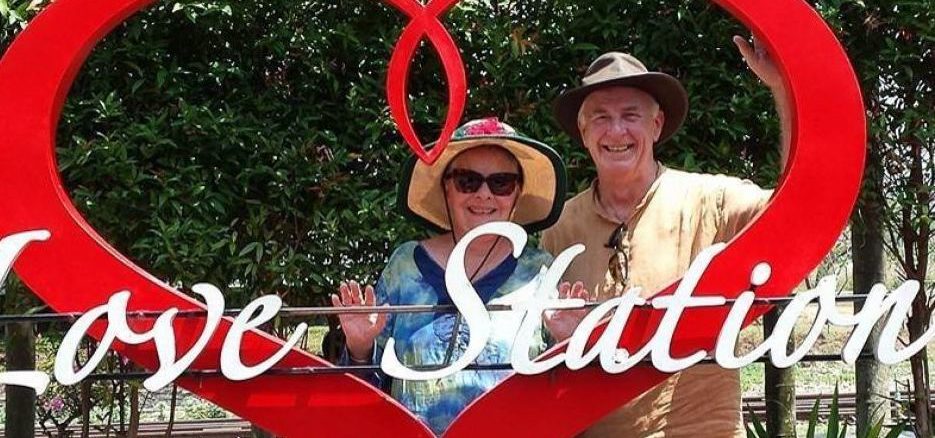
A Canberra man who helped his wife, who was suffering from the advanced stages of motor neurone disease, to die has had assisted suicide charges against him dropped.
Prosecutors said while there was enough evidence to potentially convict Neil O’Riorden, it was decided it was not in the public interest to prosecute him for an act of “love and compassion”.
ACT Director of Public Prosecutions Shane Drumgold said he did not intend the move to be a green light for assisted suicide in Canberra.
Mr O’Riordan’s wife of 25 years, Penelope Blume, was suffering from the advanced stages of motor neurone disease when she died in his arms at their home.
The couple had shared a last meal and sat together hugging and talking until the early hours of the morning.
In the process of taking her own life, Ms Blume used an item modified by Mr O’Riordan, 63, that ensured she was unconscious before she died.
He was subsequently charged with one count of aiding suicide.
The court heard Mr O’Riordan had discouraged his wife from ending her life, successfully convinced her to delay on at least one occasion, and was honest and cooperative with police.
Ms Blume had been motivated to take her own life before she fully lost mobility.
Mr Drumgold found Mr O’Riordan had been motivated by “love and compassion” when he helped the terminally-ill Ms Blume have a “quick and painless” death.
Mr Drumgold said, if not for Mr O’Riordan’s help, Ms Blume may have suffered a prolonged and distressing death.
“Although the evidence establishes that the defendant rendered aid to the deceased, the assistance offered was minimal, motivated wholly by love and compassion, and designed to ensure that the deceased’s death was quick and painless,” Mr Drumgold wrote in his reasons to drop the charges.
“Had the defendant not made minor modifications to an item used in the suicide, death would have still resulted, however, it may have been prolonged, resulting in a highly distressing process for the deceased.”
Today Mr Drumgold informed the ACT Magistrates Court he had decided not to proceed with the case, tendering a statement of reasons to the court, which set out the decision not to prosecute.
“The purpose of publishing these reasons is to affirm transparency and accountability in the decision-making process,” Mr Drumgold told the court.
In his reasons, Mr Drumgold explained that the decision to prosecute a case was a two-stage process.
The first question, was whether the evidence offered a reasonable chance of securing a conviction.
Mr Drumgold concluded there were reasonable prospects of a conviction as Mr O’Riordan had knowledge of the impending suicide and had intentionally modified an item used to bring about his wife’s death.
The second question was one of public interest.
Mr Drumgold found it would not be in the public interest to prosecute Mr O’Riordan as the consequences would be “unduly harsh and oppressive in the circumstances”.
“Although the defendant was present for the deceased’s death, he stated that this was because he loved the deceased and did not want her to endure the trauma of death alone,” he said.
“This in turn caused the defendant significant trauma that he displayed during a subsequent lengthy police interview and beyond.”
But Mr Drumgold said it was not his intention to set a precedent for how assisted suicides were dealt with in the ACT.
SheSociety is a site for the women of Australia to share our stories, our experiences, shared learnings and opportunities to connect.

Leave a Reply